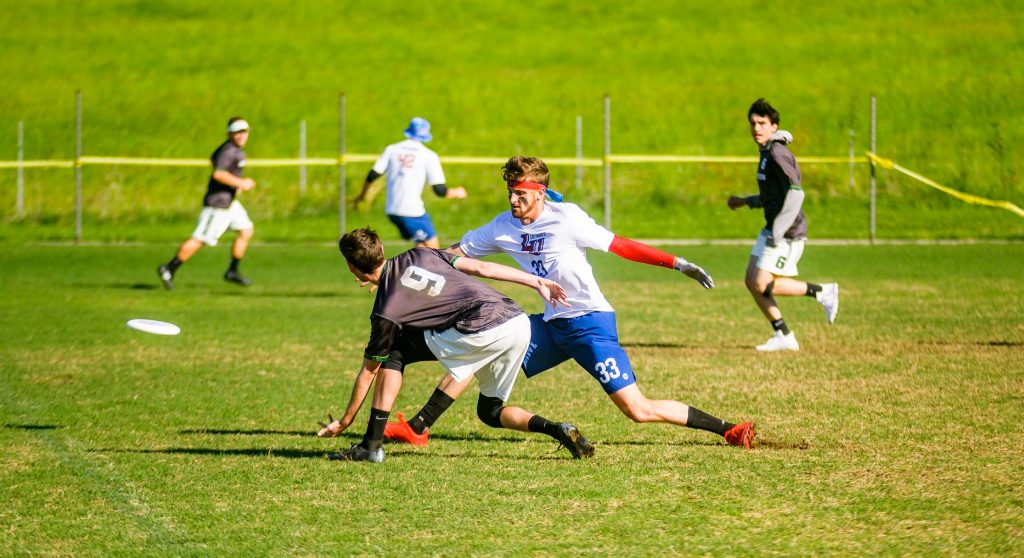It started out just like any other Saturday morning. Temperatures hovered in the mid 50s. Leaves littered the field, and the sun beamed down on my ultimate frisbee team. It was going to be a good practice.
And then in an instant, it wasn’t.
Halfway through a scrimmage, I tracked down a pass towards the back of our endzone for a score. But what I didn’t notice was the impending brick wall not far from the rear boundary. I didn’t have much time to think, so I reached out my hands to brace myself.
Immediately after impact, searing pain shot up my right arm. At first, I thought I had injured my wrist, but after the initial rush of adrenaline subsided, pain increased in my elbow. I couldn’t lift my arm above my waist, and before long, my arm was swelling.
A doctor’s X-ray confirmed the news. I had fractured my radial head – the first broken bone of my life. I would need six weeks to make a full recovery, the first three with my arm in a sling.
Like an early morning fog, my season vanished into thin air.
Injuries are the great equalizing fate for athletes in sports. Not everyone gets the same amount of recruitment, nor the opportunity to become a champion in their sport. But whether you are Clemson QB Trevor Lawrence or the back-up midfielder for a Division III lacrosse team, injuries have the same effect on all of us.
My story is just one example of the countless injuries college athletes sustain. Even if we do not put ourselves in dangerous situations, injuries can still find us at the worst of times and in the most unpredictable circumstances.
But through this experience, I have learned a lesson that I needed to slow down in order to appreciate: leadership doesn’t stop when you’re hurt.
For the first week after my accident, I thought I could relax, avoid practice and just focus on healing. While I still want to get better, my coach reminded me that my team still needs me to be there and lead them as best as I can.
Not by my own choice, I was almost thrust into the role of a pseudo-coach. I do not have extensive knowledge of ultimate, but what I do have I give to my teammates completely. It is not a role that gets me the most attention or glamor, but it is a necessary one and my willingness to be selfless for my teammates directly correlates to their success.
Through the few practices the team has held since the injury, I’ve gained a whole new appreciation for the sacrifice and the effort my coach makes for this team. Rain or shine, cold or warm, winning or losing, my coach gives of himself to ensure our success and accepts little glory for himself. While I never doubted his loyalty to the team or his care for us as players, standing on the sidelines with a broken elbow has shown me just how much he gives of himself for our benefit.
The next time I get to lace up my cleats for a practice in the spring, I will do so with a fresh realization of what it means to be both a teammate and servant. I now see how important leadership on a team is, and from here on out will cherish every chance I get to lead.
It took a broken elbow to obtain this perspective, but I would not have it any other way.
John Simmons is the Web Manager. Follow him on Twitter at @JohnSimmonsJr7.
